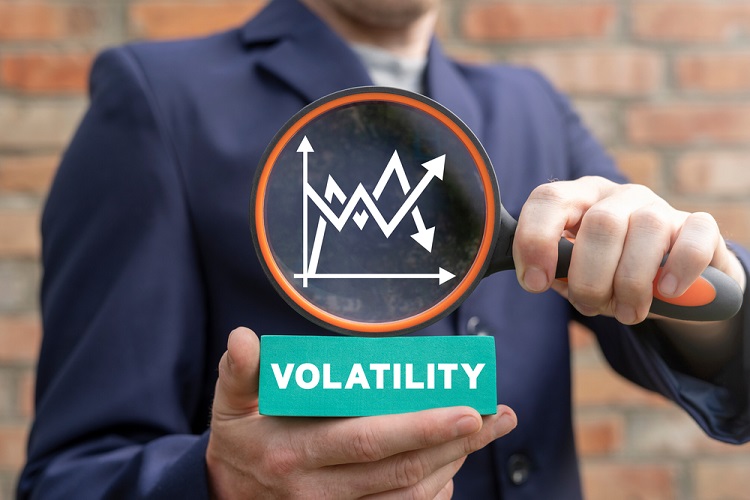How To Invest When Inflation Is High
Inflation, it seems, is popping up everywhere.
Gas prices. Groceries. Home sales. Everyday necessities. You name it, and it seems that inflation has reared its ugly head in more ways than we care to count. And it might have you rethinking your investment strategy.
Perhaps you’re considering making changes to your investments when inflation is bad. But financial experts say that’s not necessarily the case.
Ramit Sethi, a personal finance expert and author of I Will Teach You To Be Rich, says, “If you have a diversified portfolio, you’ve already planned for inflation.”
Let’s take a deeper dive into what exactly that means, and how inflation could affect your investment portfolio – or not.

Don’t Panic About Volatility
Even though the market may experience volatility and change from day to day, stocks generally tend to trend upward over the very long term. Fortunately, this means that you can lessen the negative impacts of inflation through a diversified portfolio invested in balanced index or mutual funds.
Sethi explains, “A simple target-date fund or index fund tends to handily outpace inflation over the long term.”
Target-date funds are mutual funds designed to adjust your level of risk exposure as you get closer to your target retirement date. For example, if you plan to retire in 30 years your target-date fund will automatically and gradually transition more of your investments from stocks that offer high growth/risk potential to bonds that provide smaller but more stable returns. Index funds allow you to passively replicate the return of a benchmark index such as the S&P 500 or Nasdaq 100.
Financial experts explain that if your focus is on the long term, then unforeseen and unpredictable events such as rising inflation shouldn’t alter your long-term investment strategy. By maintaining a balanced investment portfolio – even when inflation is high – you won’t miss out on potential market growth.

Think Twice Before Making Strategy Changes
When inflation is high, you might start to wonder whether you should invest more money into the market, move your money out of stocks entirely, look for investment alternatives, or put a stop to any new investment for the time being.
But if you’ve set up a diverse portfolio, you may want to think carefully before changing your investing strategy. For example, if you put money into a 401(k) and receive a company match, reducing your contributions could lower the matched funds you receive, which amounts to leaving money on the table.
You could also be looking at a loss if you decide to cut back on your traditional IRA or health savings account. These types of accounts often offer tax advantages that could save you money in the short term; cutting back on them could increase the taxes you owe while at the same time decreasing long-term investment growth.

Hedge Against Inflation With These Alternative Investments
If you’re looking for new investment opportunities, consider sectors that manufacture or produce items that people need, such as food and fuel, even when prices are going up. In addition, investments in real estate and land perform well, on average, during times of high inflation. Investment advisors also tend to point to commodities, including metals, oil, and agricultural goods as a hedge against inflation, but it’s important to remember that there is some risk involved owing to changes in supply and demand.
Also worth checking into investments designed to match their returns to the current rate of inflation, such as Treasury Inflation-Protected Securities (TIPS). Investments like these are best for people who have a balanced portfolio and plan to hold on to the securities for a year or more.
According to Felicia Gopaul, a certified financial planner and financial coach, “TIPS can make sense for those people who have some cash sitting on the sidelines. It gives them a better yield than savings, money market, or even short-term CD rates. If they can wait at least one year [before selling the investment], for certain investors it can make sense.”
All in all, a sound investment strategy during times of inflation may include a combination of things, including riding out the difficult economic times with your diverse investment strategy, focusing on long-term financial goals, and avoiding overspending. As the saying goes, what goes up must come down, which is definitely true when it comes to inflation.
